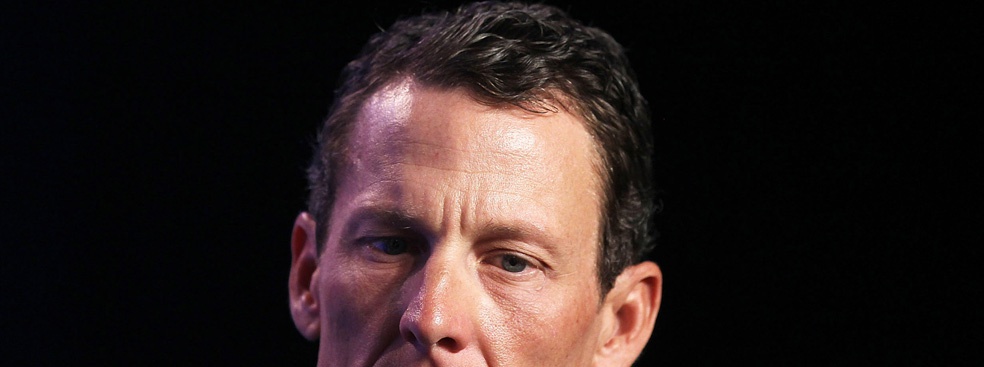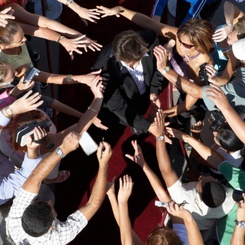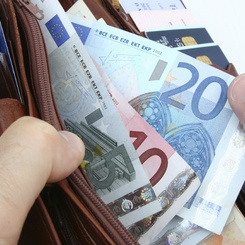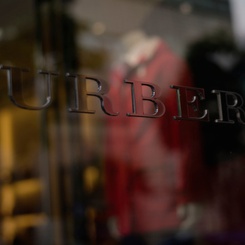On August 24th, 2012 an athletic icon fell from high when the United States Anti-Doping Agency issued a report serving Lance Armstrong with a lifetime ban from competitive cycling and stripping him of all competitive results from August 1st, 1998 to present. But what might have surprised some, came as no surprise to others.
Indeed, Armstrong over the years had built a strong public image founded not only on his athletic ability but also on his work with his LiveStrong foundation and his own personal battle with cancer. That said, he had also faced numerous accusations of doping since the 1990s, been called a “cancer in cycling” by former professional cyclist and sports journalist Paul Kimmage and tested positive for steroid use at least once during his professional career.
Despite these previous accusations, Lance Armstrong’s multiple corporate sponsors have voiced their complete surprise in the wake of recent events. Nike, who stood by his side in August when the USASA report was first announced, withdrew their support and severed and all ties once damning evidence became public, claiming in a statement that they had been “misled for more than a decade.” Did Armstrong’s corporate sponsors not have doubts? Do they hold any kind of responsibility in this kind of an event?
According to Thierry Lardinoit, founder of the School’s InternationalSports Marketing Chair, not only do corporate sponsors have a responsibility to defend the credibility of sport, they have vital interest to do so.
“What’s critical here is that this is a drama for all of sport, not just for Lance Armstrong and not just cycling,” he explains. “With one of the biggest stars in competitive sport being called a habitual cheater for a huge segment of his career, all kinds of doubts about the fairness of professional sport have been raised. And if professional sports are not fair, then what’s the point? If athletic performance isn’t “real”, then what’s the point of corporate sponsorship?”
Indeed, the logic behind corporate sponsorship is the tangible link it offers to the real world. In sponsoring an athlete, brands have no control over their performance and therefore, by entering into an agreement with them, they’re playing the game and picking a favorite. And they know their athletes well, on a personal level.
“Corporate sponsors generally have extremely close, even personal relationships with their sponsored athletes. Oakley, Radio Shack, Nike and others must have had at least some doubts as doping allegations continued to pop up. Yet, it’s clear that they chose short term profits over the long term implications of a scandal. I believe that by choosing to extend contracts with a potential cheater, they were doing themselves – and professional sport in general –a serious disservice.”
As Professor Lardinoit points out, associated ideals, along with awareness, perceived quality of products and consumer loyalty, is one of the key factors that contribute to the strength of a brand. This factor is of the utmost importance because it helps create an emotional link between the brand and all the elements that make up its universe. And as Armstrong was a big part of his sponsors’ universes, their brands may suffer in the wake of this scandal. Especially since some of these contracts were longstanding, including a 16 year partnership with Nike. It may be to repair this damage that Nike is now courting squeaky clean golfer Rory McIlroy.
“There’s no arguing that Armstrong was a cash machine for these brands, but only in the short term. In the long term, he’ll likely be a liability. Today, when results from a cycling event are announced, the public will begin to doubt if the winners have cheated. And if sport loses its credibility, then sponsorship too loses its reason for being. I think companies with a direct link to sport have a huge responsibility to protect the fairness of sport, if at least in the name of their future business. You have to be credible to inspire.”
And for any brand involved directly in sport, like equipment managers, protecting integrity and sportsmanship is even more important. One of their primary business goals is to encourage the public to partake in sport and get them active. Their bottom line is affected by the public’s passion for sport and supporting athletic role models is a big part of building this passion.
A study we conducted with Toluna International (online panel and survey-technology) during the Olympic Games in London showed that, of those individuals who watched more than an hour per day, 50% of Spanish, 40% of English, 33% of German and 41% of French viewers felt inspired to partake in more sports and more than half felt compelled to encourage their children to be more active.
“The inspirational power of the Olympic games is very strong. However, if there was some doubt that these athletes were cheating, that power to inspire the public to partake in sport and be more active would be diminished. Without a doubt this would have a major impact on the business and on the bottom line of sponsoring firms. If sport loses credibility, you risk losing clientele.”
Of course, Lance Armstrong was not the first disgraced athletic icon nor will he be the last. Some commentators –including William C. Rhoden at the New York Times – have pointed out perceived double standards since other scandal-ridden athletes have managed to hang on to their lucrative contracts. But Professor Lardinoit would caution against this kind of approach.
“Every situation is different. Tiger Woods was disgraced in some respect but held onto his contract. But to be fair, he cheated on his wife while Lance Armstrong cheated his sport and cheated his fans. The cases are fundamentally different, especially for a brand like Nike whose business is sport,” says Professor Lardinoit. “The scandal surrounding Lance Armstrong directly impacts his credibility as an athlete, his ability to perform in his sport and compete fairly.”
How can sponsors avoid this kind of scandal? According to Professor Lardinoit, contracts need to be more explicit and spell out that any actions damaging to the credibility of performance would result in termination. And brands should use their personal relationships with athletes to make sure they’re aware and give themselves the option of being proactive is doubts are raised. Unfortunately, it appears that this type of clause is often brought into effect when the damage has already been done.
“And more factors than just doping impact the credibility of sport today,” Professor Lardinoit goes on to add. I believe that rigged matches and external coercion are the biggest problems today and will certainly have a major impact on professional sport, especially in regions like Eastern Europe. In Romania and Azerbaijan for example, we’re actually seeing already a decrease in the number of football spectators because the public is generally aware that games can be thrown.”
All in all, it’s important to remember that cheaters are a minority. Most athletes are striving above all to beat their own personal best and would have no interest in cheating themselves. And although it’s the centre of debate right now, cycling is not the only sport where doping and cheating can exist. Nevertheless, it’s a problem that everyone in the sports world needs to be aware of and collectively fight against. Cheating is a direct attack on the very essence of sport.









